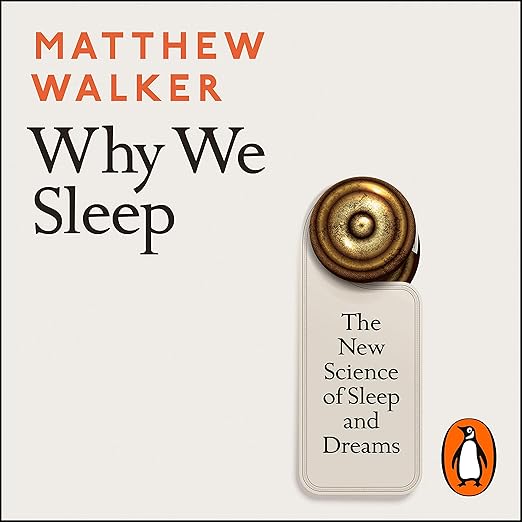Evening Habits That Help You Sleep Better and Worry Less
For many of us, the struggle isn’t just falling asleep — it’s switching off the noise of the day. In a world of endless notifications, late-night scrolling, and worries that linger long after we’ve turned out the lights, sleep can feel elusive. But a few simple, intentional habits in the evening can make a world of difference. In this post, I’ll walk you through practical, realistic ways to ease into rest — and let go of stress — without needing a total life overhaul.
Why Evening Routines Matter More Than You Think
We often focus on our mornings — powering up for the day, creating morning rituals, setting goals. But your morning actually begins the night before. When you go to bed anxious, overstimulated, or restless, you carry that tension into the next day.
A good evening routine helps your brain and body shift gears. It doesn’t have to be long or elaborate. In fact, the best routines are calming, simple, and repeatable.
Let’s explore seven effective evening habits that promote better sleep and reduce worry.
1. Set a Consistent Wind-Down Time
Our bodies love routine — especially when it comes to sleep. Try setting a “wind-down” alarm about 60–90 minutes before bed. This isn’t your bedtime, but the moment when you start signaling to your body that the day is slowing down.
During this time, begin dimming lights, turning off screens, and engaging in low-stimulation activities.
🛏️ Tip: Consider using a smart alarm clock or sunrise / sunset lamp (like the Hatch Restore or Philips SmartSleep)
2. Limit Screen Time (But Make It Easy)
It’s tempting to scroll your phone or binge-watch a show to relax — and that’s okay in moderation. But the blue light from screens delays melatonin release, making it harder to sleep.
Instead of going cold turkey on screens, create a buffer zone. Try putting your phone on “Do Not Disturb” or leaving it to charge outside the bedroom. If you do need screen time, consider blue light–blocking glasses or switching to night mode on your devices.
🕶️ Here are some simple, but effective blue light glasses

3. Introduce a Simple Journaling Habit
One of the most effective ways to calm a busy brain is to get your thoughts out of it. A simple 5-minute journaling habit can help you unpack the day and release mental clutter before sleep.
You don’t need anything fancy — a notebook and pen will do — but you can also use guided journals with prompts. Just a few lines about what went well today, what you’re grateful for, or what you’re letting go of can shift your mindset before bed.
4. Create a Bedroom Environment That Invites Sleep
Your sleep space matters. Small changes can make your bedroom more restful, like:
- Keeping the room cool (around 65°F / 18°C)
- Using blackout curtains
- Adding a calming scent like lavender
- Removing clutter that subconsciously stresses you
Even adding a white noise machine or calming playlist can help signal “sleep mode.”
🛋️ This is a really good white noise machine.
5. Read Fiction (Not Email)

Reading before bed can lower cortisol (the stress hormone) and help you fall asleep faster. But the kind of reading matters.
Nonfiction, especially self-help or productivity books, can activate your thinking brain. Try switching to fiction instead — something engaging but not too intense.
Reading physical books or using an e-reader with a warm backlight (like the Kindle Paperwhite) is ideal.
6. Gentle Movement or Stretching
A few light stretches, yoga poses, or even a short walk around the house can help relieve physical tension. This is especially useful if you’ve been sitting most of the day or dealing with stress.
Some people enjoy a quick yin yoga flow, a short Tai Chi sequence, or a guided bedtime stretch on YouTube. The key is to keep it gentle and not raise your heart rate too much.
7. Try Guided Relaxation or Meditation
If anxiety tends to spike when your head hits the pillow, guided relaxation is your friend. Apps like Calm, Headspace, or Insight Timer offer short sleep stories, progressive muscle relaxation, and meditations to help your body fully let go.
Even 5–10 minutes of focused breathing or a body scan can slow your nervous system and bring you into the present moment.
🧘♂️ An acupressure mat is a really good tool to help you when mediating.
Books That Can Help You Build Better Sleep Habits
For readers who want to dive deeper into the topic, here are two excellent reads:
- “Why We Sleep” by Matthew Walker – A scientific and accessible look at the importance of sleep.
- “The Sleep Solution” by Dr. Chris Winter – A practical guide that’s often funny, realistic, and easy to apply.


Final Thoughts: Make Your Evenings Yours
Improving your evening routine doesn’t require a total life overhaul. Start small — choose one or two habits that feel doable. Maybe you swap your phone for a book. Maybe you try journaling three nights a week. Maybe you buy that lavender pillow spray.
The point isn’t perfection — it’s creating space for your brain and body to rest, gently and intentionally.
Over time, these small habits build into something powerful. They become a quiet act of self-care — a way of saying, “I’m letting go of today, and preparing for tomorrow.”








4 Comments
Comments are closed.